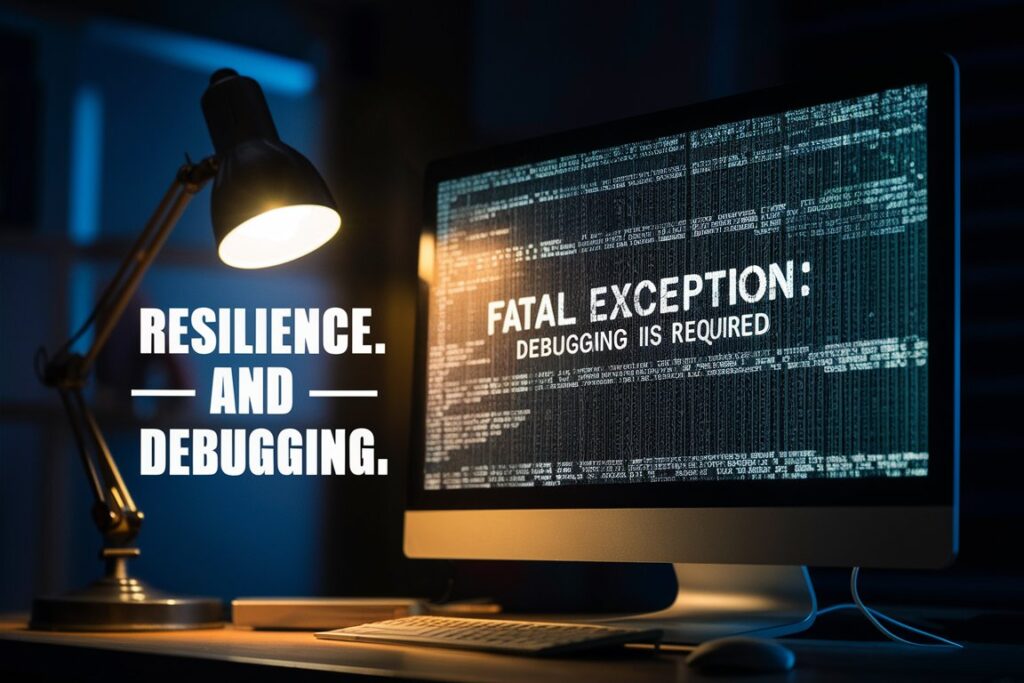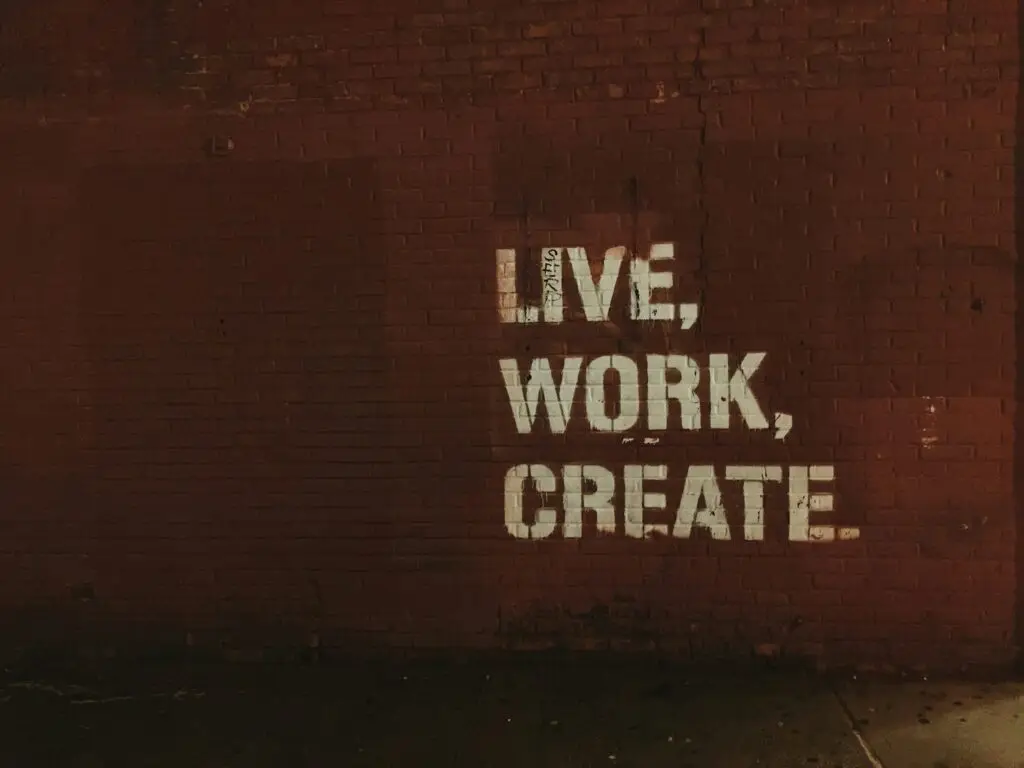The advent of technology in the 21st century has profoundly changed our lives with computers and programming everywhere, but when it comes to programming itself you need to acknowledge this one important fact: “That there will always be tech barriers for you” Struggling with a bug that you just can’t seem to squash, or an algorithm that appears impossible even though it’s staring you right in the face, or just feeling blocked and uninspired is one of the most soul-sucking aspects of making things. You are not alone, but here is the deal. I am sure that every developer, from novice to expert, has been there. So are you also one of those who is really stuck on a programming project? Well fear not,
Today, we look at 6 strategies that you can implement right now to break past those bottlenecks created by losing momentum in your programming project. Attitude has a lot to do with failure, you can approach it and not only get back but also stronger and more confident in your problem-solving skills if you approach it the right way. Let’s dive in and learn how to break through the barriers that hold you back and keep your programming projects moving forward.

1. Take a Break and Change Your Perspective
Step Away:
One of the best weapons that you have when you are in a project roadblock is to walk away from it. Even if it’s only 5 minutes, take some time off and think about what other ways there would be to solve your issue. It feels like the harder you try to get out, the deeper in you go; running on a hamster wheel of frustration often results in declining returns. A break allows your brain to reset and some time to process the problem in background. Whether that is making a coffee, watching a short video or doing something else entirely, taking time away can help you approach your task with fresh and unclouded perspectives when you start to work on it again.
Change Your Environment:
Sometimes the environment you’re working in contributes to your mental block. If you’ve been staring at the same screen, in the same room, for hours on end, it’s easy to feel trapped in the problem. A simple change in scenery can do wonders for your creativity. Try moving to a different room, heading to a café, or even just taking a quick walk outside. A new environment often brings new ideas and perspectives, which can help you see the problem in a different light.
Seek Inspiration:
When you’re stuck, one of the most effective ways to re-energize yourself is to draw inspiration from others. Read articles or blog posts related to your programming project watch tutorials that might introduce a new approach, or even attend virtual conferences or webinars on your topic. Sometimes hearing how others have tackled similar problems can open your mind to solutions you hadn’t considered. Exposing yourself to new ideas, strategies, and perspectives can give you the boost you need to break free from the mental block and reignite your progress.
Taking a break is not about procrastination—it’s about giving your mind the space it needs to think more clearly and creatively. With renewed energy, you’ll be better equipped to tackle the challenge head-on and find innovative solutions.
2. Break Down the Problem into Smaller Steps

Divide and Conquer:
When you find yourself overwhelmed by the complexity of a project, The practice is to break the problem down into smaller, smaller tasks. Tackling a large project in front of you can feel insurmountable. But by dividing it into pieces that can be managed, How do you change big challenges? Into small challenges that can be solved. This approach is called “Divide and Conquer” helps isolate specific problems. This makes finding a solution much easier.
For example, if you’re working on a coding project and a feature isn’t working properly. Instead, view the entire codebase as a single problem of concern. Focus on individual functions or components. Is there a problem with the algorithm? User interface? Or maybe the database query doesn’t return the correct data? Breakdown allows each part to be systematically analyzed. This might help solve a few problems along the way.
Prioritize Tasks:
Once you’ve broken down the problem, The next step is to prioritize the tasks that need to be addressed first. All problems are not created equal. Some of them may be fundamental obstacles that prevent you from moving forward. While others may be less urgent. Take a moment to consider how small a task can be. Which is most important to the success of your project, and work on it first?
Start with the tasks that have the greatest impact or otherwise impede progress. If you’re stuck on a feature or task? Ask yourself if the problem is necessary at this point. Or can you switch to another job to continue the project? This will not only relieve the pressure immediately. But it also builds momentum which will boost your confidence as you start to tick off small tasks.
By approaching your project step by step, you create a clear path forward. Instead of seeing the problem as an unsolvable whole, you focus on manageable chunks, each bringing you closer to the finish line.
3. Leverage Online Resources and Communities

Search engine:
When you’re stuck on a project The quickest way to solve the problem is to use search engines effectively. Whether you are dealing with a bug unfamiliar concept or confusing error messages Tools like Google or DuckDuckGo are often your best friend. A quick search using exact keywords can take you directly to the article, blog post, or document that addresses your issue. For example, typing “How to fix TypeError in JavaScript” or “Best practices for Database Indexing in SQL” will provide you with a targeted solution that will save you hours of frustration…
Programming community:
The power of the programming community when you’re faced with a challenge cannot be overstated. Sites like StackOverflow allow you to ask detailed questions and often get expert advice within minutes. It’s also a great resource for finding previous discussions on similar topics. Someone else may have encountered your problem before.
If you’re looking for a broader discussion, check out r/programming or Reddit‘s Dev. GitHub discussions are another valuable resource. Especially if you work with open source projects. You can dive into specific topics or collaborate with other developers on possible solutions. Joining these communities doesn’t just help you get stuck. But it also strengthens your problem-solving network. Helps you learn from other people’s experiences.
Online Courses and Docs:
If you’re stuck on a particular tool, language, or concept because you’re unfamiliar with it, Taking the time to learn is probably the best way to do it. Platforms like Udemy, Coursera, Pluralsight.
Relevant Tools:
- Google Search: For finding targeted solutions to specific programming issues.
- Stack Overflow: A Q&A platform where developers help each other solve code-related problems.
- Reddit’s r/programming: A community for sharing insights, questions, and advice related to programming.
- GitHub Discussions: A collaborative space for developers working on open-source projects.
- Udemy, Coursera, Pluralsight: For structured learning in a wide variety of programming topics.
- freeCodeCamp and Codecademy: Excellent for free, hands-on tutorials and coding exercises.
Leveraging these tools and communities can dramatically speed up the problem-solving process, turning frustration into productive progress.
Note – If you are looking for more sites to master tech skills, consider reading this article.
4. Debug Effectively

Use the debugging tool:
One of the most important skills for overcoming project obstacles is learning to effectively debug. Modern integrated development environments (IDEs) like Visual Studio Code, IntelliJ IDEA, and PyCharm come with powerful debugging tools to help you move through your code. Set breakpoints and check variable values in real time by pausing the program at a specified time at every stage of the code life cycle. This gives you a deeper insight into what’s going on. This helps you pinpoint exactly what went wrong. Whether it’s a logical error Wrongly calculated variable or incorrect function calls
For example, if you are dealing with a bug that occurs only in certain situations. Setting breakpoints in your IDE at critical points in your code can help you see exactly what’s going on under the hood. This methodical approach to problem solving is often more effective. It’s more than scanning hundreds of lines of code for bugs.
Print Statements:
Sometimes simple problems It calls for a simple solution. Inserting printouts or log statements at strategic points in your code can help you track how data moves through your program. This method allows you to check variable values. See how to loop. or understand the condition’s decision-making process. For example, if a function returns an unexpected result You can type input Intermediate calculations And the final output comes out to understand where the error occurred…
Although fixing typographic errors is basic, But identifying the source of various problems still effective This is especially true when the debugging environment is difficult to configure on complex deployments or remote servers, such as console.log() in JavaScript, print() in Python, or System.out.println() in. Java tools can give you valuable insights into what your code is actually doing versus what you think it’s doing.…
Code reviews:
When you hit the wall I’ve tried my best. Sometimes new eyes are the best tool for correcting imperfections. Asking a colleague, friend, or mentor to review your code can reveal issues you may have overlooked. They are often able to identify problems quickly because they don’t have the same biases or assumptions that you developed when writing code.
Code reviews are also an opportunity to improve your coding practices. Experienced reviewers can recommend more efficient algorithms. Points out potential security risks. Or even show you how to better structure your code to avoid similar issues in the future. Monitoring pull requests for GitHub, GitLab, Bitbucket, and other tools to collaborate on code reviews It’s easier and allows you to comment on specific lines or sections of your project.
5. Seek Mentorship or Guidance

Connect with Experienced Developers:
When you’re stuck on a project The quickest way to solve the problem is to contact a more experienced developer. Whether through professional networks like LinkedIn, online communities, or even within your company. Connecting with people facing similar challenges can give you helpful tips or new perspectives. Experienced developers often have troubleshooting tips, shortcuts, or best practices at It can help you see problems in a new perspective. and provide solutions that you may not have considered before. You can DM instagram content creators, who post coding related stuff and ask them for guidance. For example, You can reach @code_masala on instagram to DM me your problem (link in the contact option on the menu)!
Find a Mentor:
Having a mentor can make a significant difference in your development journey. Not just for immediate projects but for long-term growth. Mentors can guide you through difficult issues. Introducing new learning methods and provide insights beyond technical knowledge, such as dealing with project pressure. Work flow improvements and even to advance your career. Platforms like MentorCruise or Coding Coach offer ways to connect with mentors in your field. And many developers have mentoring opportunities through coding bootcamps, meetups, or tech conferences…
Asking for advice or counseling You’re not just solving immediate problems. But it also builds relationships that will benefit your personal and professional growth for years to come.
6. Embrace Failure as a Learning Opportunity

Learn from Mistakes:
Failure is an inevitable part of the development process, but it’s also one of the most powerful ways to grow. Instead of getting discouraged, take the time to analyze what went wrong. Was it a logic error, a miscommunication with your team, or a misunderstanding of a tool? By identifying the root cause, you can improve your approach and avoid repeating the same mistakes in the future.
Stay Persistent:
Programming challenges often require persistence. It’s easy to feel frustrated after multiple failed attempts, but staying determined is key. Every setback brings you one step closer to the solution. The more you push through challenges, the stronger your problem-solving skills become. Embrace the learning curve, and remember: persistence pays off in the end.
Conclusion
Overcoming programming obstacles requires problem-solving skills, flexibility, and continuous learning. By taking a step back, breaking down problems, using resources, and asking for advice, you have the tools to tackle even the most complex challenges. Remember that every obstacle is an opportunity to grow and hone your skills. Perseverance and open-mindedness are essential. And with these strategies in hand You can confidently overcome obstacles. and make continuous progress on your path to becoming a successful developer…



0 Comments